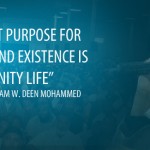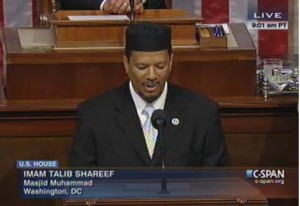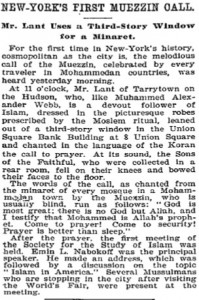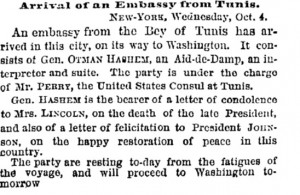Muslim History Detective’s log, 05/28/13
Recently I travelled to New York to give a speech and I have to say, as a Muslim History Detective, I feel like a kid in a candy store whenever I am there.
Everywhere I turn in the city there are always so many amazing connections to the history of Islam in America, going back several centuries.
For example, in a 1793 speech on the “universality of masonry” DeWitt Clinton included Muslims among those considered “friends and brothers” and warned against “the madness of religious hatred.”
He delivered his speech at New York City’s Holland Lodge No. 8, where he was a member, and which today is considered “one of the country’s foremost Masonic Lodges.”
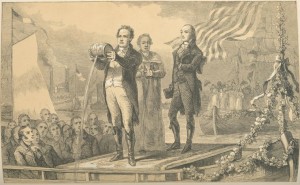
DeWitt later became one of New York’s earliest mayors, US senators, and governors. He is also known as the “Father of the Erie Canal.”
It is quite likely that DeWitt gained some of his brotherly spirit, for harmony across religious divisions, from working with his uncle, Founding Father and first New York Governor George Clinton, for whom he served as a personal secretary from 1790-1795.
The elder Clinton was surrounded by strong proponents of religious freedom, even travelling with his close friend, Founding Father and President George Washington, on a 1790 campaign to get support for ratification of the Bill of Rights, which, as we know, includes the much fought for and won guarantee of freedom of conscience in the First Amendment.
During this campaign, President Washington assured a Rhode Island Jewish congregation, in a now historic letter, that the American government “to bigotry gives no sanction, to persecution no assistance” and that in this country “every one shall sit in safety under his own vine and figtree, and there shall be none to make him afraid.”
The Give Bigotry No Sanction project describes the letter as “a landmark in the history of religious freedom in America, and part of a founding moment in U.S. history when the country was negotiating how a democracy accommodates differences among its people.”
DeWitt’s uncle later became vice-president of the United States under Founding Fathers and Presidents Thomas Jefferson and James Madison both of whom had fought hard for religious freedom in America and had specifically recognized Muslims among those deserving of that protection.
Interestingly—at least as far back as the days when New York was still the capital of the United States—Governor George Clinton and President George Washington were also members of the Holland Lodge, wherein DeWitt had made clear that Muslims were welcome as “friends and brothers” and the Qur’an was among the religious scriptures welcome in Masonic assemblies.
More than half a century after DeWitt’s 1793 speech at the Lodge, Masons were still referencing it in their publications—including in a reprint of a speech on the “Masonic character” of George Washington—and always beginning with his following words:
It must be made obvious to a mind of the least reflection, that were Masonry to prescribe particular tenets and opinions in religion for her votaries, that it would be utterly incompatible with the universality of the Order. For this, and the reasons before mentioned, she has wisely avoided an explicit patronage of any theological creed.
The commitment to unity across religious divisions articulated inside the walls of the Holland Lodge was not unlike the commitment to religious freedom outside the walls, clearly defined in the First Amendment of the Bill of Right’s adopted just two years earlier.
The Amendment reads in part:
“Congress shall make no law respecting an establishment of religion, or prohibiting the free exercise thereof . . .”
Like the Masons, America too had “wisely avoided an explicit patronage of any theological creed” in order to preserve its union and universality.





